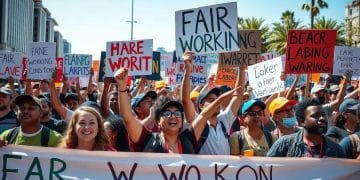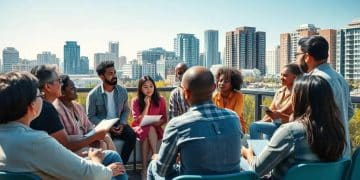Feeling civil rights updates: what you need to know
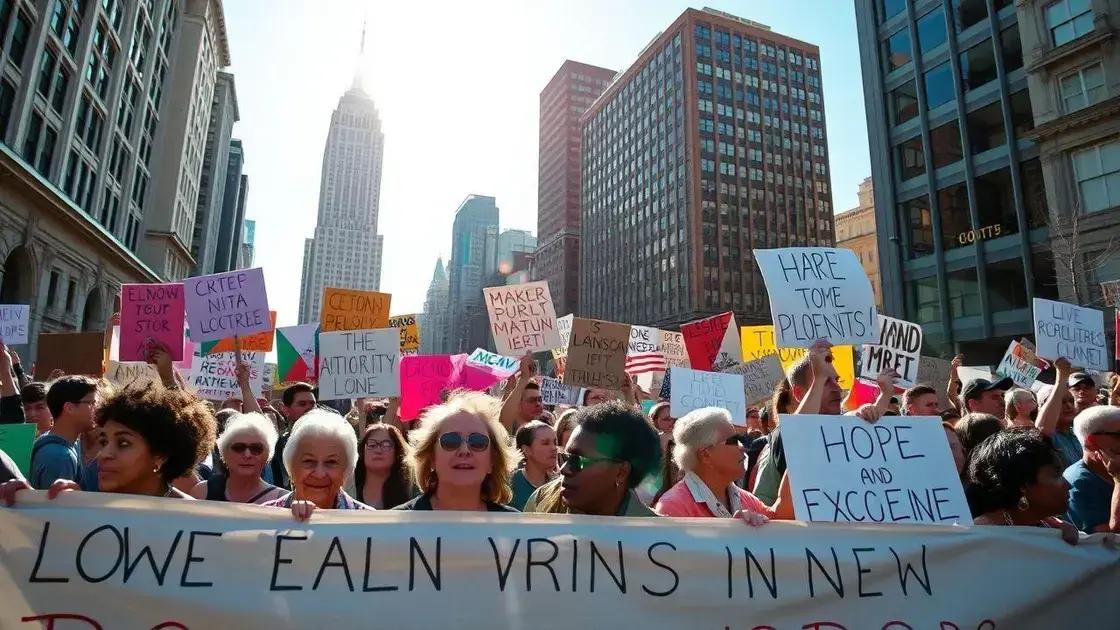
Feeling civil rights updates entails recognizing the ongoing struggles of advocates against systemic inequality, misinformation, and the need for unified efforts to promote justice and equality across diverse communities.
Feeling civil rights updates is crucial for anyone wanting to stay informed on important social issues. Have you ever wondered how these changes affect your community and daily life? Let’s dive into what’s happening right now.
What are the latest civil rights updates?
Staying informed about the latest civil rights updates is essential for understanding the progress and challenges in the fight for equality. Recent events have highlighted the evolving landscape of civil rights, affecting many communities across the nation.
Current Issues and Developments
Recently, there have been significant milestones in civil rights legislation. These changes aim to address systemic inequalities and promote justice for all. Activists are working tirelessly to ensure that marginalized voices are heard.
Grassroots movements have gained momentum, supported by increased awareness on social media. Many young activists are stepping up to lead the charge, signaling a new era in civil rights activism. They are not only raising awareness but also driving tangible change through advocacy and policy reform.
Key Areas of Focus
- Racial equality: Legislation to combat discrimination
- Gender rights: Advances in workplace equality
- LGBTQ+ rights: Strengthening protections against discrimination
- Voting rights: Efforts to ensure fair access to the ballot
Challenges remain despite these advancements. Opponents of civil rights reforms continue to push back against progress. Understanding the latest civil rights updates helps individuals engage in meaningful discussions and take action in their communities.
As society evolves, the importance of protecting civil rights cannot be overstated. With ongoing efforts and awareness campaigns, there’s a hope for a more just and equitable future for everyone.
Impact of social media on civil rights movements
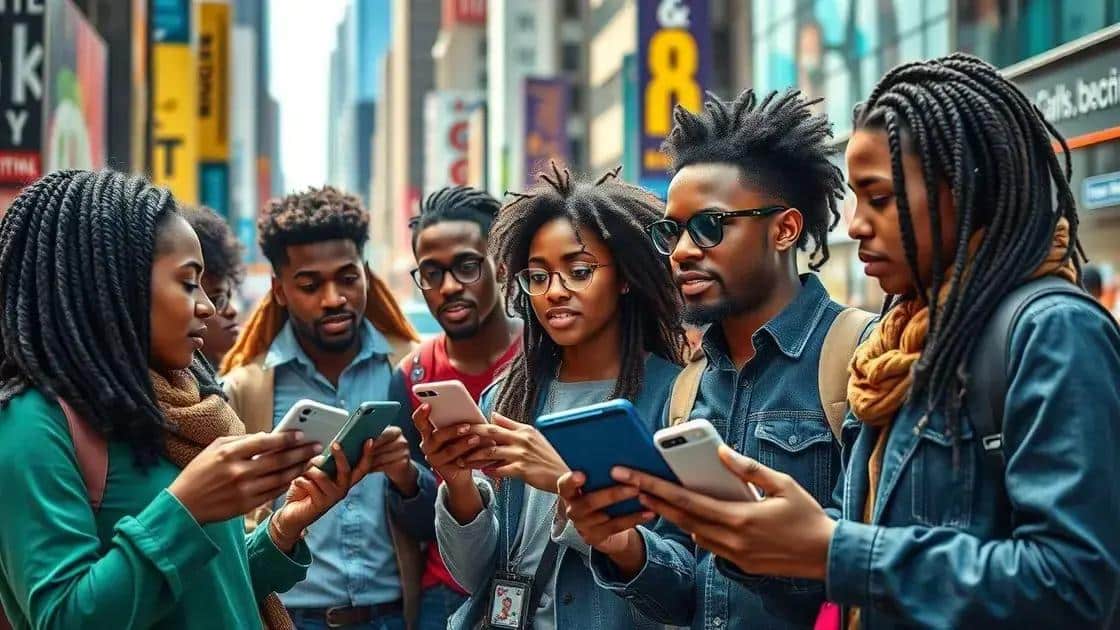
The impact of social media on civil rights movements has been profound and transformative. In recent years, platforms like Twitter, Instagram, and Facebook have become vital tools for activism. They help spread awareness quickly and connect people from diverse backgrounds.
Amplifying Voices
Social media plays a crucial role in amplifying the voices of those fighting for civil rights. Activists use these platforms to share their stories, mobilize supporters, and raise awareness about injustices. This immediate form of communication helps keep issues at the forefront of public discussion.
- Real-time updates on protests and events
- Connecting activists across the globe
- Highlighting diverse perspectives and experiences
- Creating viral campaigns that attract widespread attention
Moreover, hashtags have become powerful tools in framing issues and rallying support. Hashtags like #BlackLivesMatter or #MeToo allow users to unite under a common cause, making it easier to spread awareness and gather solidarity.
However, social media also presents challenges. Misinformation and divisive content can hinder movements, leading to confusion and distraction. Activists continually strive to combat these challenges by promoting accurate information and fostering constructive discussions.
Engagement and Advocacy
Additionally, social media encourages increased engagement from younger generations. Many young people are inspired to join the movement, often organizing events or initiatives through these platforms. The ease of sharing information enables a wider audience to participate in civil rights advocacy.
As social media continues to evolve, it remains a double-edged sword. With its vast reach, it can empower movements but also pose significant challenges that activists must navigate carefully.
Key figures and organizations driving change
Understanding the key figures and organizations driving change in civil rights is vital for recognizing how movements evolve. Many individuals and groups have played crucial roles in advocating for justice and equality.
Influential Leaders
Leaders such as Martin Luther King Jr. and Rosa Parks have paved the way for future generations. Their bravery and dedication inspired countless others to join the struggle for civil rights. Today, many contemporary figures continue this legacy, addressing issues like systemic racism and social injustice.
- Advocates like Bryan Stevenson work tirelessly to fight inequality in the legal system.
- Organizations such as the NAACP focus on enhancing civil rights through education and legal support.
- Young activists, like Malala Yousafzai, inspire global movements pushing for education equity.
These leaders and organizations work together to uplift marginalized voices. Their efforts often lead to legislative changes and shifts in public perception. However, the fight for civil rights is ongoing, as new challenges continue to arise.
Organizations Making an Impact
Numerous organizations are at the forefront of civil rights advocacy. Groups like the American Civil Liberties Union (ACLU) protect individual rights through litigation and education. The Human Rights Campaign (HRC) fights for LGBTQ+ rights, ensuring equal protection for all. Each organization plays a significant role in addressing different issues within the civil rights arena.
Through partnerships and coalitions, these organizations leverage their strengths to make a more significant impact. They create campaigns that educate the public and mobilize communities for action. The collaboration among activists, leaders, and organizations amplifies the fight for justice and equality.
Challenges facing today’s civil rights advocates
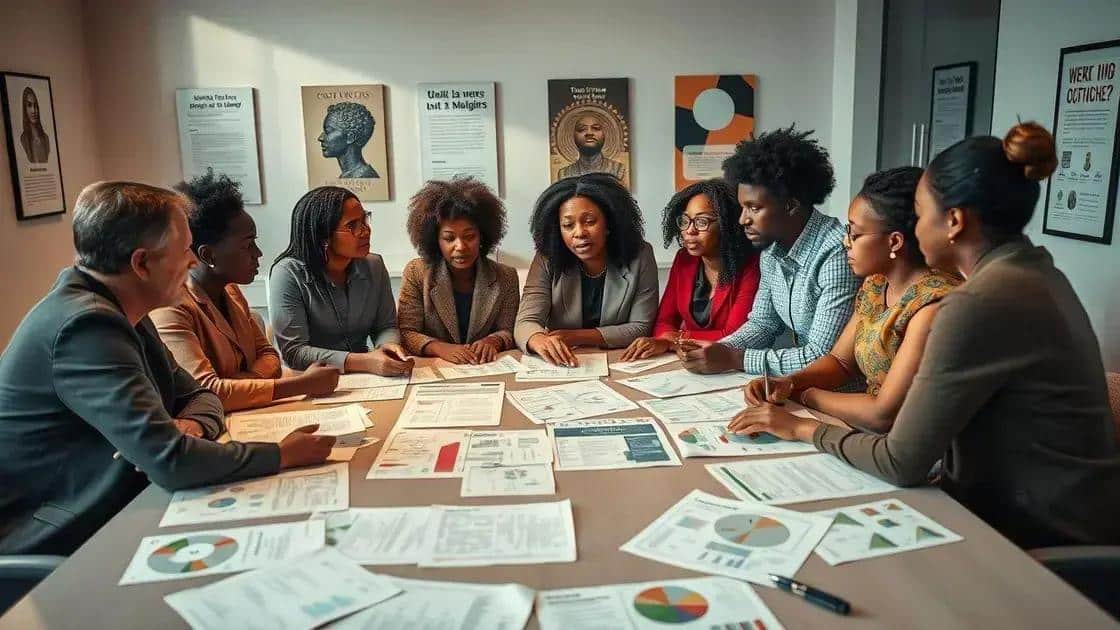
The challenges facing today’s civil rights advocates are significant and varied. In a constantly changing social and political landscape, advocates must navigate numerous obstacles to promote justice and equality effectively.
Systemic Obstacles
One of the biggest challenges is overcoming systemic inequality embedded in laws and institutions. This inequality often makes it difficult for advocates to make progress. In many areas, outdated policies hinder efforts to secure equal rights for marginalized groups.
- Voter suppression tactics that limit access to the polls
- Discriminatory policies in housing and employment
- Inadequate legal protections for marginalized communities
- Funding limitations for advocacy organizations
Additionally, public awareness and education are essential. Many people are unaware of the rights they possess or the injustices that exist. Advocates often face the challenge of mobilizing communities to take action.
Digital Challenges
With the rise of social media, misinformation has become a significant hurdle. False narratives can spread quickly, undermining the work of advocates and creating confusion. To address misinformation, civil rights advocates must not only provide accurate information but also engage effectively on social media platforms.
Another challenge is the need for unity among various groups. Ensuring collaboration between different advocacy organizations can be difficult, especially when priorities differ. Building coalitions that respect and acknowledge the diverse experiences within the civil rights movement is critical.
Ultimately, the fight for civil rights remains an ongoing struggle. Understanding these challenges is essential for fostering resilience and finding innovative solutions to advocate for change.
FAQ – Frequently Asked Questions about Civil Rights Advocacy
What are the main challenges faced by civil rights advocates today?
Civil rights advocates face challenges like systemic inequality, misinformation, funding limitations, and the need for unity among diverse groups.
How does social media impact civil rights movements?
Social media amplifies voices but also spreads misinformation, making it crucial for advocates to engage and provide accurate information.
Who are some key figures in the civil rights movement?
Key figures include leaders like Martin Luther King Jr., Rosa Parks, and contemporary activists like Bryan Stevenson and Malala Yousafzai.
What role do organizations play in promoting civil rights?
Organizations like the ACLU and NAACP work to protect rights, provide education, and mobilize communities for change.

